
Since 2016, I have served as an official at the OECD, a global forum for international collaboration and progress. The OECD is a Paris-based international organization with 38 member countries. Its primary goal is to shape policies that foster prosperity, equality, opportunity, and well-being for all.
I currently serve as a project lead and policy analyst at the OECD.AI Policy Observatory, a team working with governments to shape public policies for responsible, trustworthy, and beneficial artificial intelligence (AI).
Before this, I worked as an Innovation Specialist for the OECD Observatory of Public Sector Innovation (OPSI) (@OPSIgov). OPSI works with governments to understand and encourage new approaches to address society’s complex problems by empowering public servants with new insights, knowledge, tools, and connections to help them explore new possibilities.
The projects below highlight some of my favorite work so far.
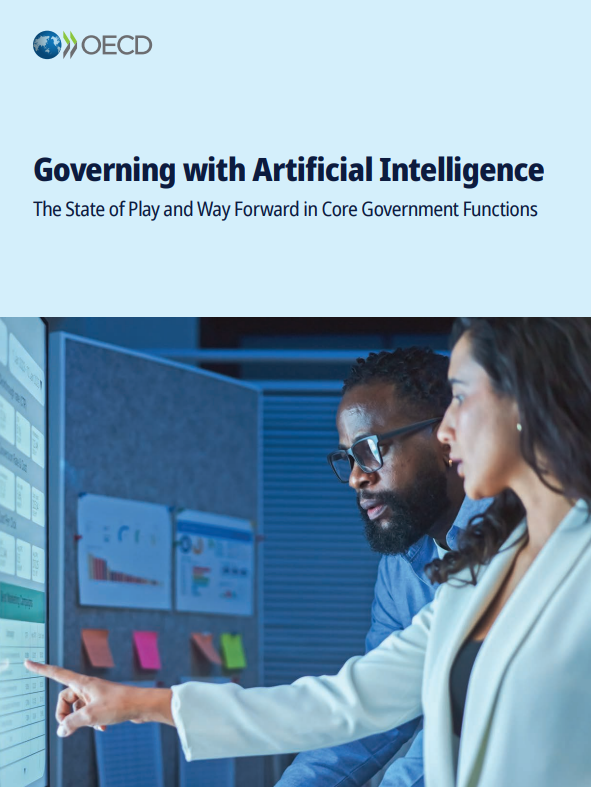
Governing with Artificial Intelligence
AI is one of the most transformative forces of the 21st century, becoming an integral part of digital government worldwide. Governments’ use of AI can facilitate automated and tailored internal processes and public services; foster better decision making and forecasting; improve fraud detection; and improve public servants’ job quality and learning — with tangible impacts. This report explores 200 real‑world examples of how governments are using AI across 11 core functions — from delivering public services and administering justice to fighting corruption, managing finances, and reforming the civil service. It highlights the unique opportunities and risks AI presents in government, delves into the challenges governments face when adopting these technologies, and offers insights into the enablers, safeguards, and engagement strategies needed to ensure AI is used in a trustworthy and effective way
I was a lead author for certain chapters and contributed to the others. I also served as the overall project manager, collaborating with subject matter expert authors from across the OECD and integrating their cntributions into a unified narrative.
Access report AI in Government hub

Artificial intelligence futures
While AI policy discussions often cover existing AI challenges, the long-term implications of rapidly advancing AI systems remain largely unknown and fiercely debated. Experts raise a wide range of potential future risks from AI, some of which are already manifesting in various ways (e.g., bias, discrimination, surveillance, lack of accountability, job displacement, and mass manipulation). Many experts are concerned about the ability to ensure increasingly general AI systems are safe and aligned with human values, prevent their misuse, and address other negative societal impacts. Future benefits of AI may be just as great, with the potential to address complex issues, improve health and education outcomes, and accelerate scientific progress.
I jointly (along with the OECD Strategic Foresight Unit) led efforts to help governments address potential challenges and seize benefits by providing them with insights into the possible futures of AI and equipping them with the knowledge and tools necessary to develop forward-looking AI policies.
A key part of this work was building the OECD Expert Group on AI Futures, a multi-disciplinary group that comprises 60 leading AI and foresight experts from an array of governments, companies, universities, and civil society organizations.
AI Futures workstream Expert Group on AI Futures
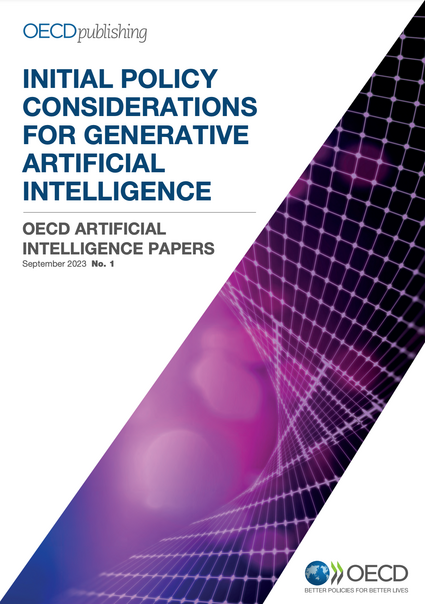
Generative AI
Generative AI creates new content in response to prompts, offering transformative potential across multiple sectors such as education, entertainment, healthcare and scientific research. However, these technologies also pose critical societal and policy challenges that policy makers must confront: potential shifts in labour markets, copyright uncertainties, and risk associated with the perpetuation of societal biases and the potential for misuse in the creation of disinformation and manipulated content. Consequences could extend to the spreading of mis- and disinformation, perpetuation of discrimination, distortion of public discourse and markets, and the incitement of violence.
Governments recognise the transformative impact of generative AI and are actively working to address these challenges. The OECD.AI team is working on generative AI as a horizontal project. I had the pleasure of working on our first report on the subject (with more to come), Initial policy considerations for generative artificial intelligence. This report aims to inform these policy considerations and support decision makers in addressing them.
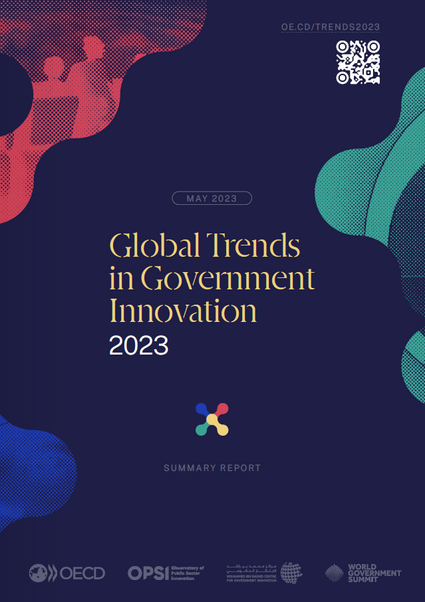
Tracking global innovation trends
One of OPSI’s mission objectives is to “uncover emerging practice and identify what’s next.” To help achieve this, I managed an annual project to conduct research and host an open ‘Call for Innovations’ crowdsourcing exercise. In this, we sought to uncover innovative projects going on around the world. We analyzed these cases and surface key trends, challenges, and success factors in innovation today, as well as examples and stories to illustrate them and recommendations to help support innovation.
We recently launched our 2023 edition, with trends on algorithmic accountability, integrated and tech-eneabled healthcare, innovative social equity programs, and the evolution of public engagement. In addition to reports, we develop digital stories to help users better understand these trends and cases.
2023 edition 2021/22 series (focused on cross-border innovation) 2020 series 2019 edition 2018 edition 2017 edition
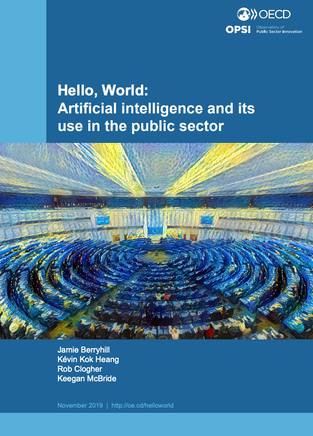
Tech primers for public servants
Hype around emerging technologies often overstates or obscures their practical applications. An understanding of these technologies is important for helping policy makers and civil servants determine whether they can help them achieve their missions.
To help public officials navigate this complex terrain, distinguish hype from reality, and be better informed about what these technologies may mean in their own context, I’ve led teams of brilliant people to create tech “primers” that seek to:
- • Highlight key background details and provide accessible, contextualized explanations of technical underpinnings.
- Assess the current global landscape of the technology.
- Surface implications and provide recommendations to government.
- Illustrate key practices and initiatives through case studies.
We created two tech primers: one on Artificial Intelligence, and one on Blockchain. You can access each below.
AI primer (English and Spanish) Blockchain primer
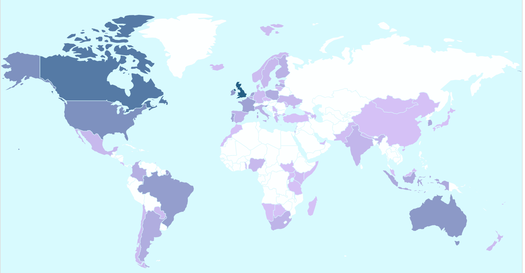
Innovation case study library
I was the overall project manager for the OPSI website. One of my favorite projects has been leading the development and iteration of one of OPSI’s lead services: a digital case study platform where innovations can be collected and shared to help disseminate good ideas. Any public sector innovator may submit innovations to the platform and at present there are over 800 cases on the platform, with new cases being added regularly.